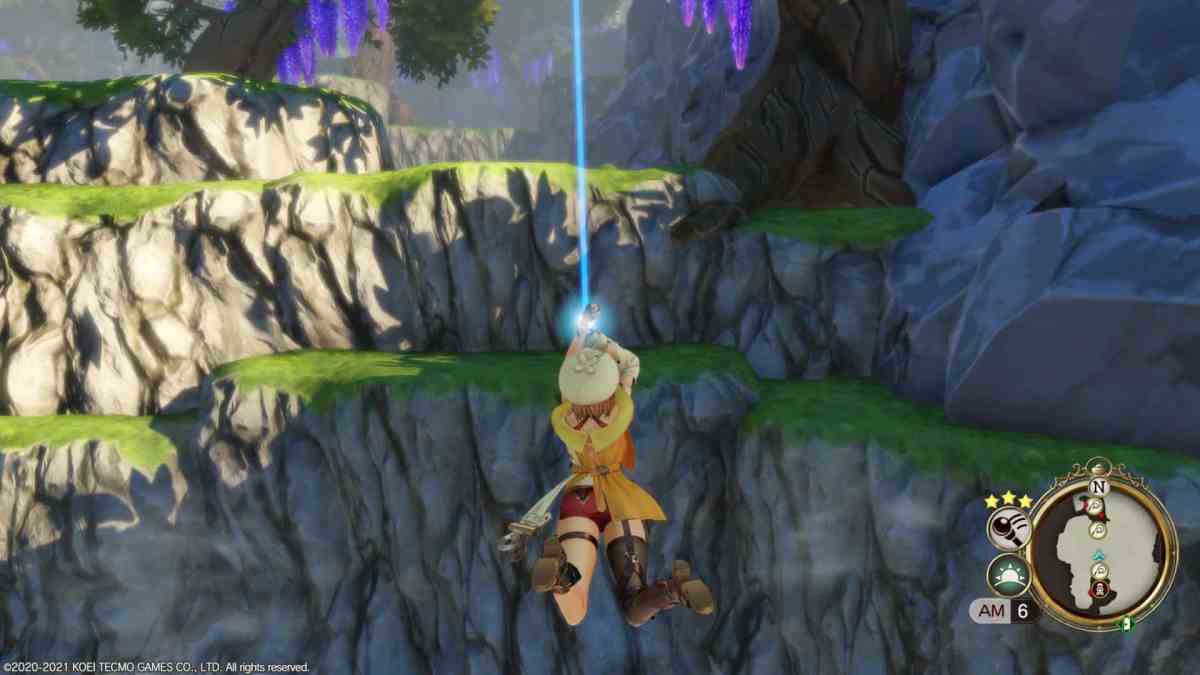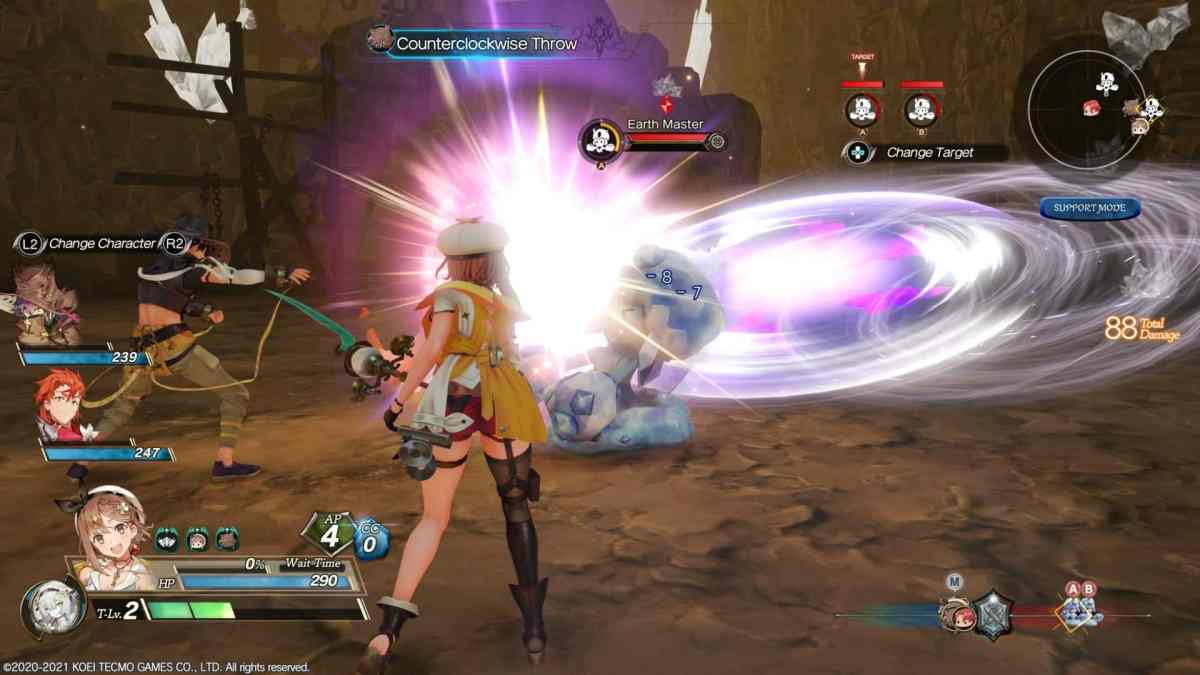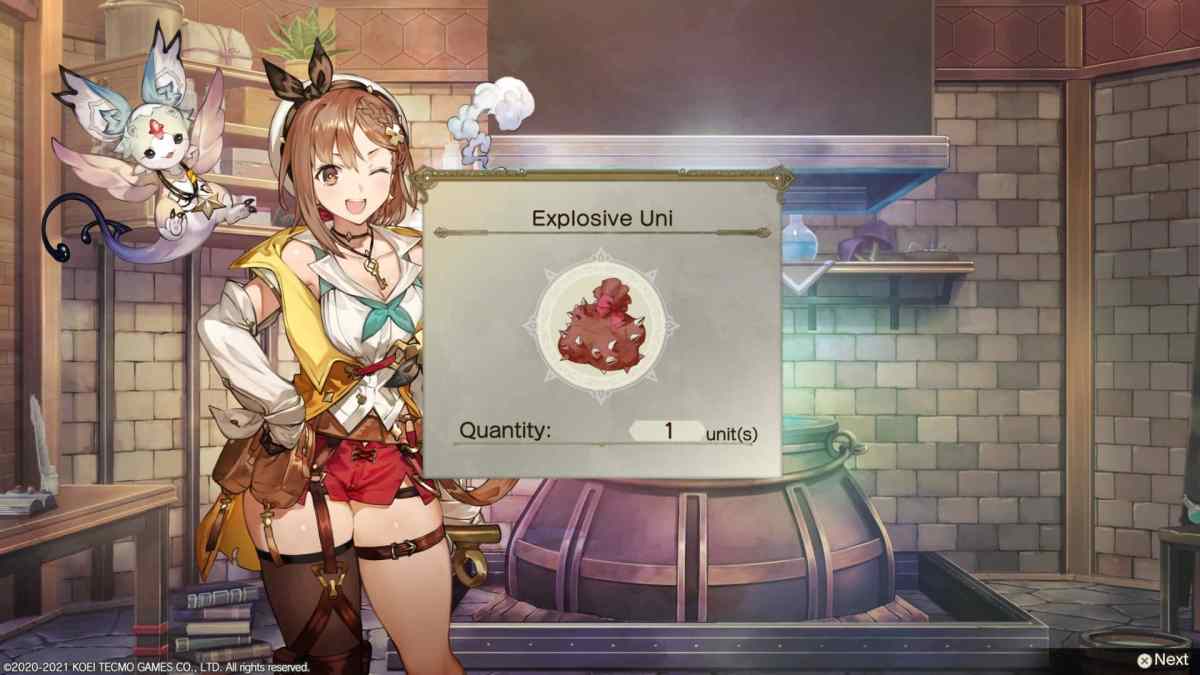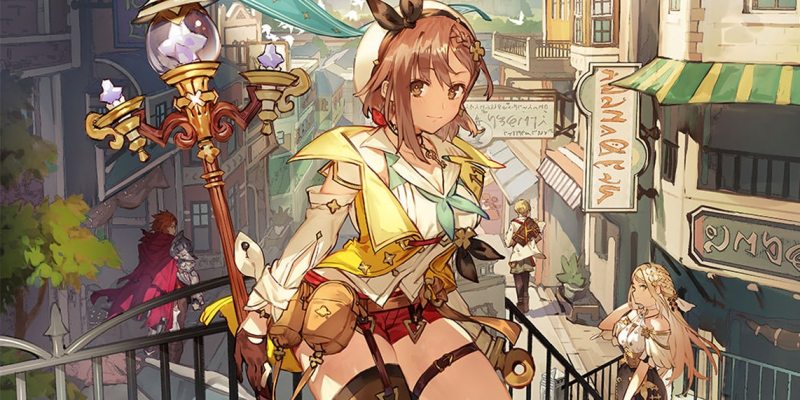Gust’s Atelier series dates all the way back to 1997 and has been a relatively niche franchise since. However, 2019’s Atelier Ryza: Ever Darkness & the Secret Hideout became its most popular entry yet, and now it has a direct sequel. It’s a pleasure to say that Atelier Ryza 2: Lost Legends & the Secret Fairy is a worthy entry that builds upon its predecessor.
This sequel takes place three years after the events of the first game, with protagonist Ryza arriving in the new city of Ashra-am Baird. Ryza is given a shiny stone that she finds out is actually an egg when a mysterious creature, Fi, hatches from it. While in the city, she encounters all of her comrades from her previous adventure, as well as new ones. Together, she and her group of friends embark on a new journey to uncover secret ruins and learn more about Fi’s origins.
Story progression in Atelier Ryza 2 is largely the same from the first game. After clearing some critical path objectives, sometimes you’ll be tasked to create certain items to move the story forward. In order to advance in the previous game, you were sometimes required to pass time by doing alchemy or just sleeping it away. This time there are more optional character quests to fill the downtime between story beats.They are great ways to learn more about the individual characters both in your party and around the world.
A new story mechanic introduced is the Exploration Diary. As you traverse through the different ruins on your adventure, the diary has side objectives, called the Research List, to fulfill, like finding a certain treasure chest or defeating a specific miniboss in the area. Completing all of these will cause glowing objects and new “shadow” enemies to spawn, which also drop these new items. These glowing objects contain memory fragments and ruin fragments of the past civilization that inhabited the area.

In the Exploration Diary, you match up the context clues written in different memory fragments and place them into separate slots in the ruin fragments to complete an excerpt about the past civilization. While a large portion of this is optional, pursuing these provides extra context about the world around Ryza, as well as information about Fi. It also incentivizes exploration as you scour every nook and cranny in the ruins for the fragments. To help exploration, Ryza also has expanded traversal options in the field, including swimming, rope swinging, and shimmying across ledges.
The battle system is largely unchanged. Both allies and enemies are on a timeline, and when their respective icons cross a certain point, they can perform actions like attacking or using items. Action Orders return too. Sometimes your allies will recommend you use a certain type of attack, be it a magical or physical attack, or one with a specific element, and the ally who called for it will follow up with an additional attack automatically without using up their own turn or impeding their place in the timeline.
The system has a number of small refinements. In the first game, you would accumulate Ability Points, or AP, through normal attacks and then spend the AP to pull off Skills. If you had a max AP gauge, then you were instead able to spend it all to increase your Tactics Level for that specific fight, allowing you more normal hits per turn that would subsequently build more AP faster.
In Atelier Ryza 2, that’s not the case. Now, your Tactics Level automatically builds up when you execute Skills by spending AP. This change is very welcome because now that the Tactics Level isn’t directly tied to your max AP limit, you’re incentivized to whip out flashier attacks, making for much faster-paced and more exciting battles. There’s no more hesitation around the decision whether to spend your precious AP using Skills to inflict more damage or save them up to increase your Tactics Level.

However, one large change that I didn’t appreciate was the removal of the Extra Order mechanic. Previously, you could spend an additional 10 AP in order to immediately perform another action without waiting for your next turn to come around. This was helpful if you needed to finish off a powerful enemy or break its guard before it could unleash its ultimate special attack. In Atelier Ryza 2, the mechanic is just completely gone and isn’t replaced with anything. It’s a bizarre omission considering I utilized it quite a bit during the first game.
The progression for alchemy has been changed too. In the previous game, creating items gave you experience points to increase Ryza’s alchemy level. This has been replaced with a Skill Point, or SP, system. In Ryza’s skill tree, you can spend points to learn new recipes and alchemy skills. SP can be gained through a variety of ways, including making more items through alchemy, completing parts of the Exploration Diary, and fulfilling menial fetch quests from the city’s bulletin board. You don’t have to hunt down any additional recipes like in the first game as it’s now all in the Skill Tree.
The actual item crafting process is much the same. As you collect materials out in the field and bring them back, you use those materials to craft items. Using higher-quality items, as indicated by a higher number on the individual material, results in better items. Equipment Reinforcing and Gem Reduction make their way back from the first game too. New to the sequel are Evolution Link and Essence Refinement. Evolution Link allows Ryza to combine items and accessories with other objects, creating a special EV-Effect, such as more protection from Thunder elemental attacks. Combining certain items can also create new ones. Essence Purification also lets Ryza change elemental properties of her item during the alchemical process.

One thing that I’m still disappointed by is the lack of English voice acting. Earlier games in the series had fantastic English dubs, but a few games ago (starting with Atelier Lydie & Suelle), it was decided it wasn’t worth including them anymore. There are many instances in the game where Ryza comes across large landmarks and makes a comment, characters will shout lines during battle, or Ryza will mutter to herself when crafting items through alchemy. Not knowing Japanese, I don’t know what any of these lines are saying — and there aren’t any subtitles to accompany these extra bits of exposition that add so much more character and nuance to the game’s world. It’s a shame as it definitely would have deepened my immersion.
I’ve always loved developer Gust’s 2D artwork. It’s incredibly clean and sharp, and the CGs reflects that. The Atelier series as a whole isn’t really about graphics — so you’re not going to see the most jaw-dropping visuals ever — but the 3D battle animations are attractive and the environments are colorful. Also, the good news is that the native PlayStation 5 version of the game runs at a stable frame rate with no noticeable performance issues. Additionally, loading times are blazingly fast and at times seem virtually nonexistent.
Atelier Ryza 2: Lost Legends & the Secret Fairy is a strong entry in the series and is an improvement on the previous game. It introduces new mechanics that fit well within the context of the story without feeling like they were forcibly implemented just for the sake of it, while also refining existing core gameplay elements. While I’m not entirely satisfied with a change, or lack thereof, here and there, this game is certainly worth your time, especially if you enjoyed Ryza’s first adventure.
